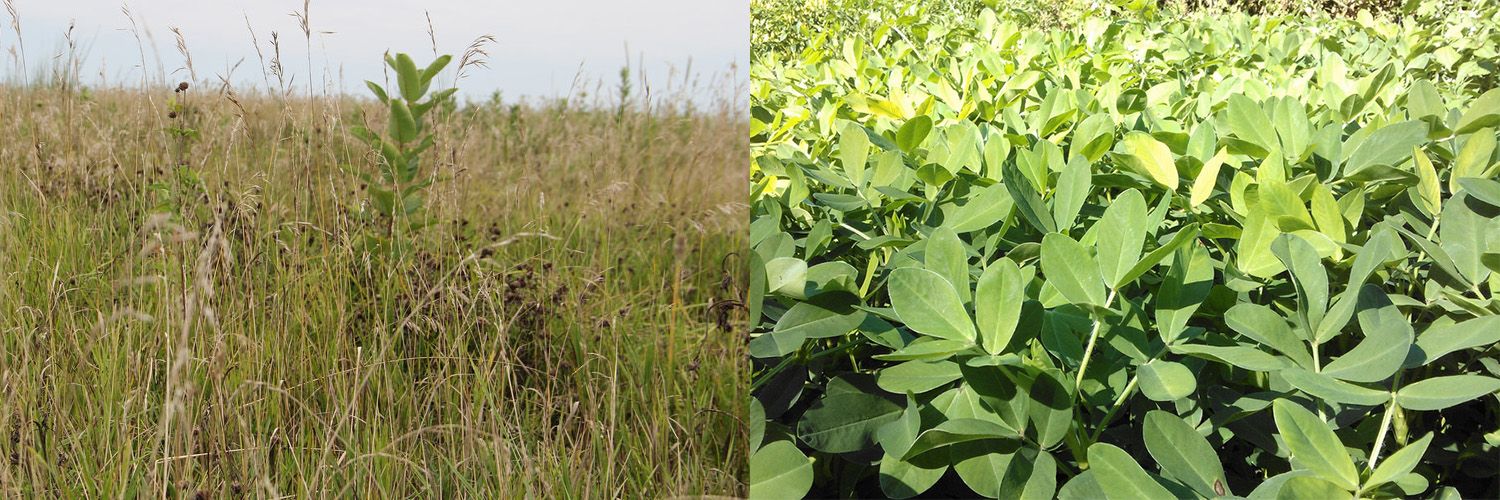Field Station 2 | Restoring the Land

This traveling seminar considers the ongoing geological, biological, and social formation of the Midwest in order to locate the historical, political and philosophical roots of the environmental crisis as it manifests in this territory. The seminar unfolds over five days in the landscape marked physically by the action of glaciers, shaped by the enduring presence of Indigenous nations, and defined politically by the colonization that intensified after the 1832 Black Hawk conflict. Bringing together Native leaders, local residents, scholars, activists, and artists for a series of lectures, tours, and conversations, the seminar aims to understand the origins and effects of the present engineered landscape and build alliances for more just and sustainable futures.
The first full day of the seminar takes place at the Kickapoo Valley Reserve in La Farge, WI. This unique conservation and recreation area, jointly managed by the State of Wisconsin and the Ho-Chunk Nation, was created on land cleared of settler farms in preparation for a US Army Corps of Engineers flood control dam that was abandoned following environmental review triggered by the National Environmental Policy Act and the Endangered Species Act. It is therefore a site where diverse attachments to the landscape are palpable, where differences between Native and non-Native practices of conservation are worked through, and where the term “restoration” takes on multivalent meanings.
- Thursday, Sep 26, 2019
9:00 am - 1:00 pm
Tour of Kickapoo Valley Reserve
Kickapoo Valley Reserve, Wisconsin 131, La Farge, WIBill Quackenbush, Ho-Chunk Historic Preservation Department
This event is at capacity; email Sarah Kanouse – s.kanouse@northeastern.edu – to be placed on the wait list
2:00 pm - 4:00 pm
Activity with Beth Rose Middleton Manning
Kickapoo Valley Reserve, Wisconsin 131, La Farge, WIBeth Rose Middleton Manning is Associate Professor of Native American Studies at University of California, Davis. Beth Rose’s research centers on Native environmental policy and Native activism for site protection using conservation tools. Further research interests include intergenerational trauma and healing, rural environmental justice, indigenous analysis of climate change, Afro-indigeneity, and qualitative GIS. Beth Rose received her Ph.D. in Environmental Science, Policy, and Management from University of California, Berkeley. Beth Rose has published on Native economic development in Economic Development Quarterly, on political ecology and healing in the Journal of Political Ecology, on Federal Indian law as environmental policy, and the history of the environmental justice movement in The CQ Guide to US Environmental Policy, and on the application of market-based conservation tools to Garifuna site protection in Caribbean Quarterly, amongst others. Her book, Upstream: Trust Lands and Power on the Feather River (2018) focuses on the history of Indian land rights and hydroelectric development in northeastern California.
This event is limited capacity; email Sarah Kanouse – s.kanouse@northeastern.edu – to inquire about space.
4:30 pm - 6:00 pm
Land Trusts and Other Native Conservation Tools
Kickapoo Valley Reserve, Wisconsin 131, La Farge, WILecture by Beth Rose Middleton Manning
Lands within Native American jurisdiction contain a fraction of Native sacred sites, cultural resources, culturally-important species, treaty-guaranteed resources, and heritage sites. In the face of institutionalized dispossession, industrial and residential expansion, and the growth of public and private conservation, Native Americans are protecting these places and resources with an innovative combination of public and private conservation tools. This work at the intersections of Native American Studies, Environmental Policy, and Environmental and Federal Indian law focuses on the tools that tribes (federally recognized and unrecognized) and Native non-profits are using to protect, access, acquire, and steward lands that were/are out of Native jurisdiction. Such tools include land trusts and conservancies, new market tax credits, carbon offsets, co-management, consultation and mitigation, and inter-tribal conservation organizations. Tribal applications of these tools represent the integration of tribal priorities, traditional perspectives, and the exercise of inherent sovereignty to steward homelands.
Beth Rose Middleton Manning is Associate Professor of Native American Studies at University of California, Davis. Beth Rose’s research centers on Native environmental policy and Native activism for site protection using conservation tools. Further research interests include intergenerational trauma and healing, rural environmental justice, indigenous analysis of climate change, Afro-indigeneity, and qualitative GIS. Beth Rose received her Ph.D. in Environmental Science, Policy, and Management from University of California, Berkeley. Beth Rose has published on Native economic development in Economic Development Quarterly, on political ecology and healing in the Journal of Political Ecology, on Federal Indian law as environmental policy, and the history of the environmental justice movement in The CQ Guide to US Environmental Policy, and on the application of market-based conservation tools to Garifuna site protection in Caribbean Quarterly, amongst others. Her book, Upstream: Trust Lands and Power on the Feather River (2018) focuses on the history of Indian land rights and hydroelectric development in northeastern California.
RSVP via Eventbrite: http://bit.ly/MiddletonManning
